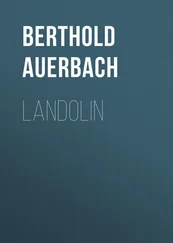Berthold Auerbach - On the Heights - A Novel
Здесь есть возможность читать онлайн «Berthold Auerbach - On the Heights - A Novel» — ознакомительный отрывок электронной книги совершенно бесплатно, а после прочтения отрывка купить полную версию. В некоторых случаях можно слушать аудио, скачать через торрент в формате fb2 и присутствует краткое содержание. ISBN: , Жанр: foreign_antique, foreign_prose, на английском языке. Описание произведения, (предисловие) а так же отзывы посетителей доступны на портале библиотеки ЛибКат.
- Название:On the Heights: A Novel
- Автор:
- Жанр:
- Год:неизвестен
- ISBN:http://www.gutenberg.org/ebooks/33294
- Рейтинг книги:4 / 5. Голосов: 1
-
Избранное:Добавить в избранное
- Отзывы:
-
Ваша оценка:
- 80
- 1
- 2
- 3
- 4
- 5
On the Heights: A Novel: краткое содержание, описание и аннотация
Предлагаем к чтению аннотацию, описание, краткое содержание или предисловие (зависит от того, что написал сам автор книги «On the Heights: A Novel»). Если вы не нашли необходимую информацию о книге — напишите в комментариях, мы постараемся отыскать её.
On the Heights: A Novel — читать онлайн ознакомительный отрывок
Ниже представлен текст книги, разбитый по страницам. Система сохранения места последней прочитанной страницы, позволяет с удобством читать онлайн бесплатно книгу «On the Heights: A Novel», без необходимости каждый раз заново искать на чём Вы остановились. Поставьте закладку, и сможете в любой момент перейти на страницу, на которой закончили чтение.
Интервал:
Закладка:
"A truce to sentiment," said the doctor to himself. "Things happen thus in this fine world. Men and beasts are alike. The stag in the forest doesn't ask what becomes of the bird, and the bird, unless it be a stork, doesn't care what becomes of the frogs! Away with sentimentality and dreams of universal happiness!"
The doctor traveled to and fro among the Highlands, always careful to keep near the telegraph stations, and, as instructed, reporting twice a day. He despaired of accomplishing his mission, and wrote to his chief that, although he could not find married women, there were lots of excellent unmarried ones. He therefore suggested that, as it would not do to deceive a queen, it would be well to have the most acceptable one married to her lover at once.
While awaiting a reply, he remained at a village near the lake, the resident physician of which had been a fellow-student of his.
The scarred face of the portly village doctor was refulgent with traces of the student cheer which in former days they had enjoyed in common. He was still provided with a never-failing thirst and ready for all sorts of fun. His manners had become rustic, and it was with a self-complacent feeling Sixtus thought of the difference in their positions.
Doctor Kumpan-this was a nickname he had received while at the university-looked upon his friend's excursion in search of a nurse as if it were one of their old student escapades. He rode with him over hill and dale, never loth to make a slight detour, if, by that means, they might gain an inn, where he could gratify his hunger with a good meal, and his thirst with a drop of good wine-the more drops the better.
"So many of our customs," said Sixtus, one day, "are, at bottom, immoral. For instance, nurse-hunting."
Doctor Kumpan roared with laughter and said:
"And you too, Schniepel," – the college nickname of Sixtus-"so you, also, are one of the new-fashioned friends of the people. You gentlemen, whose gloves are ever buttoned, treat the people far too gingerly. We, who live among them, know them far better. They're a pack of rogues and blockheads, just like their superiors; the only difference's that they're more honest about it. The only effect your care for them can have will be to make matters worse. How lucky it is that the trees in the forest grow without artificial irrigation!"
During these excursions, Doctor Kumpan gave free vent to his rough humor, and was so delighted with his wit that he could live three days on the recollection of one of his own wretched jokes.
Sixtus found himself ill at ease in the company of the village doctor, with whom it was necessary to keep on the same friendly footing as of yore; and, therefore, made an effort to hasten his departure.
He was about to take his leave-it was on the morning of the second Sunday following-when Doctor Kumpan said:
"I'm disgusted with myself for having been so stupid. I've got it! Mother nature herself, unconditioned and absolute-just as old Professor Genitivius, the son of his celebrated father, used to say, while he brought his fist down on his desk-Come along with me!"
They drove off in the direction of the lake.
CHAPTER V
Sunday morning had come again, and, with it, stirring times in the cottage by the lake. Godfather and godmother were there, and, at the first tolling of the church bell, whose sounds floated on the air like so many invisible yet audible waves, a procession moved from the house. The grandmother carried the child upon a soft, downy pillow, over which a white cover had been spread; following after her, proudly walked the father, with a nosegay in his button-hole. Beside him, was the godfather, mine host of the Chamois, followed by tailor Schneck's wife and other females. A light-haired boy about five years old, and bearing a two-pronged twig of hazel in his hand, had also joined in the procession.
"What are you after, Waldl?" asked Hansei.
The boy did not answer. Mistress Schneck took his hand in hers and said: "Come along, Waldl!" and then turning to Hansei, she continued: "Don't drive the child away! It's a good sign when a young boy goes along to the christening; the child will get a husband so much the sooner, and who knows but-" Hansei laughed to find that they were already thinking of a mate for his daughter.
While moving along in silent procession, they beheld another good omen. A swallow flew directly over the heads of the grandmother and the child, whereupon the former opened her great red umbrella and held it over herself and the babe.
Walpurga, unable to accompany them on their long walk to church, was obliged to remain at home. Her friend Stasi, who, on the previous Sunday, had altered the prayer for the queen in Walpurga's favor, remained to bear her company. Walpurga, seated in grandmother's arm-chair, looked out of the latticed window, at the violets, the buttercups, and the rosemary, the peaceful lake and the blue skies, while she listened to the sound of the church bell.
"This is the first time my babe goes out into the wide, wide world, and I'm not with it," said she; "and some day I shall go into the other world and never be with it again. And still I feel as if it was with me all the same."
"I don't know what makes you so downhearted today," said her companion; "if that comes o' getting married, I'll never have a husband."
"Nonsense!" curtly replied Walpurga; her meaning was plain enough. Soon afterward, she added in a voice tremulous with emotion: "I'm not downhearted. It's only this. I just feel as if the baby and I had been both born over again. I don't know how it is, but I feel as if I were another person. Just think of it! In all my life, I've never lain abed so quietly and peacefully as I've been doing these many days. And to be lying there perfectly well, and with nothing to do but think and sleep, and awake again, and nurse the baby, while kind folks are forever bringing whatever heart can wish for-I tell you, if I'd been a hermit in the woods for seven years, I couldn't have done more thinking. It would keep me busy day and night to tell you all. But what's that?" said she, suddenly interrupting herself; "just then it seemed as if the whole house were shaking."
"I didn't notice anything. But your face is enough to give one the blues. Let's sing something. Just try whether you're still our best singer."
Her companion insisting, Walpurga at last began to sing, but soon stopped. Stasi essayed another song, but Walpurga did not care for it; indeed, none of them were to her liking that day.
"Let's be quiet," said she at last. "Don't worry me through all those songs; I don't feel like doing anything to-day."
The bells were tolling for the third time. The two friends were sitting together in silence.
At last Stasi said: "How kind it is of the innkeeper to let them ride home from church in his wagon."
"Listen! I hear wheels. They can't be coming already."
"No, that's the rattle of the doctor's carriage. There he is, up there by the willows; and there's another gentleman with him."
"Don't talk to me now, Stasi," said the young mother; "let the whole world drive by; it's all the same to me."
She sat there silently, resting her head against the back of the chair and looking out into the golden sunlight that seemed to infuse all nature with new life. The grass was of a lovelier green than ever before; the lake glittered with the soft sheen of the ever-changing light; the waves were splashing against the shore; a gentle breeze wafted the odors of the violets and rosemary from the window-shelf into the room.
A carriage stopped before the cottage. First, the loud cracking of a whip was heard; then, approaching footsteps, and at last, the jolly doctor calling out: "Hansei! Is there no one at home?"
"No," answered Stasi, "there's nobody but Walpurga and me," whereupon there was great laughter out of doors.
Читать дальшеИнтервал:
Закладка:
Похожие книги на «On the Heights: A Novel»
Представляем Вашему вниманию похожие книги на «On the Heights: A Novel» списком для выбора. Мы отобрали схожую по названию и смыслу литературу в надежде предоставить читателям больше вариантов отыскать новые, интересные, ещё непрочитанные произведения.
Обсуждение, отзывы о книге «On the Heights: A Novel» и просто собственные мнения читателей. Оставьте ваши комментарии, напишите, что Вы думаете о произведении, его смысле или главных героях. Укажите что конкретно понравилось, а что нет, и почему Вы так считаете.












